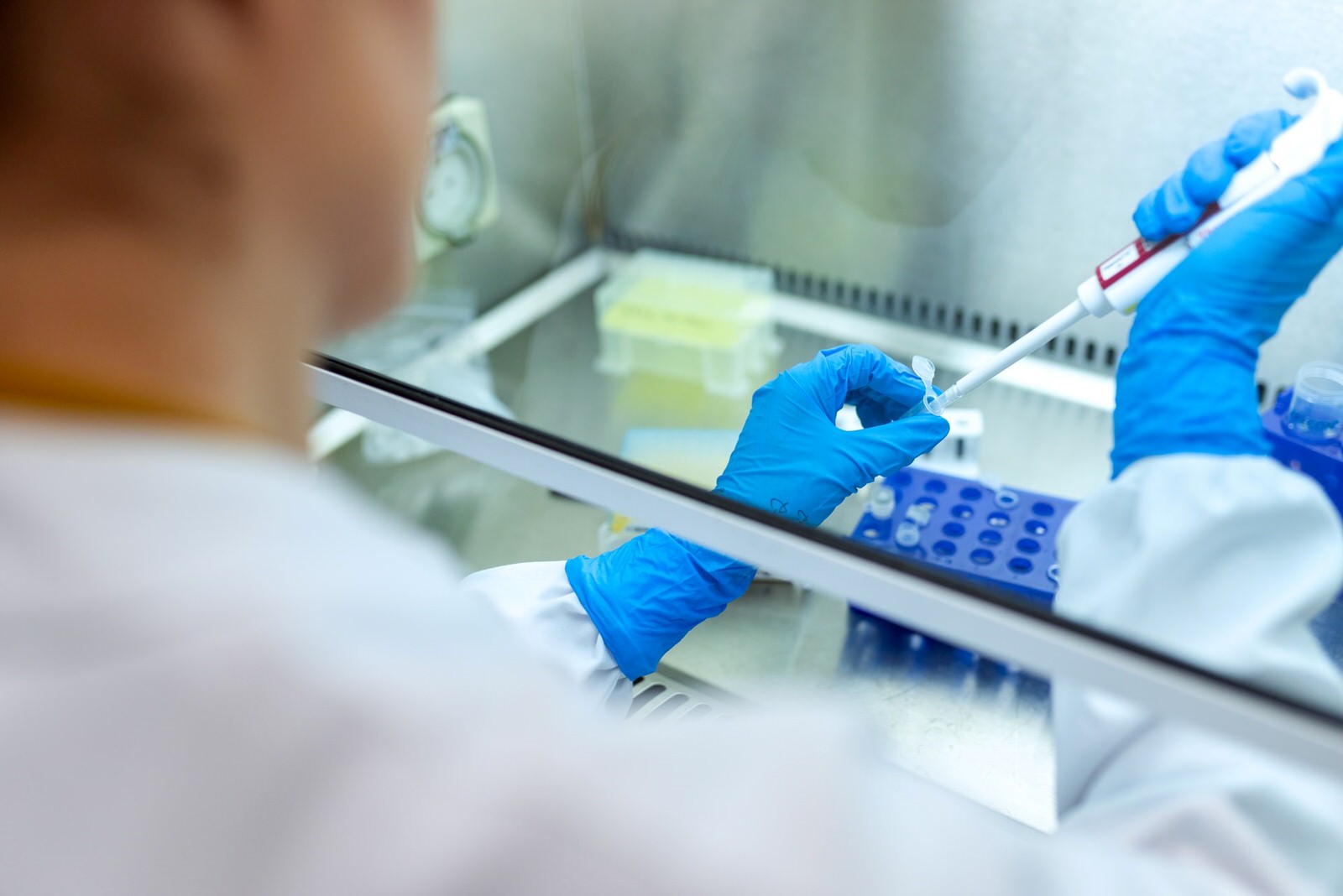
Biomedical scientists perform tests on samples gathered by doctors and nurses to diagnose various diseases and illnesses.
As a biomedical scientist, you will conduct a range of laboratory and scientific research on tissue samples and fluids to help physicians diagnose and treat illnesses. You will also evaluate the effectiveness of therapy.
Your position is vital to several hospital departments, including operating rooms and A&E, and your duties are varied. For example, you may work on medical problems such as cancer, diabetes, or AIDS, screen for and monitor various conditions, or do tests for emergency blood transfusions.
Responsibilities
Throughout your apprenticeship, you may help:
- test for diseases like Legionnaires’ disease and food poisoning
- test for infectious diseases like rubella or hepatitis
- analyse blood samples and monitor organ function
- support the blood transfusion and transplant service through blood grouping and matching
- test for blood abnormalities and diseases, like anaemia and leukaemia
- process and analyse tissue samples from operations and autopsies
- use specialist procedures like cell culture to detect cancer
- routinely test fluid and tissue samples like cervical smear tests
- update paperwork or computer records with data and test results.
Salary
- Starting apprentice salaries in the NHS is around £25,655.
- With experience and/or specialist knowledge, you can earn a salary of £32,306 to £39,027 (Band 6).
- As a senior biomedical scientist, you can expect to earn £40,057 to £53,219 (Band 7/8a). Salaries for consultant biomedical scientists, who have reached the top of their profession, are higher.
Working hours
If you’re employed by the NHS, you’ll generally work a standard 38 to 40 hours a week. A flexible approach to work is essential to cover day, evening, night and weekend working.
Working environment
You could work in a laboratory, at a research facility or at a university.
You may need to wear protective clothing.
Qualifications
Qualifications you can achieve as an apprentice biomedical scientist include:
- Level 6 Healthcare Science Practitioner – Entry requirements for this level include 4 or 5 GCSEs at grades 9 to 4 (A* to C) and A levels, or equivalent, for a higher or degree apprenticeship. This qualification will take 36 months to complete.
Skills
On a biomedical scientist apprenticeship, you’ll learn:
- knowledge of biology
- analytical thinking skills
- concentration skills
- to be thorough and pay attention to detail
- the ability to work well with others
- complex problem-solving skills
- maths knowledge
- excellent written communication skills
- to be able to use a computer and the main software packages competently.
Employers
The NHS is one of the main employers of biomedical scientists.
Other employers include:
- Food Standards Agency
- forensic laboratories
- government departments
- Health and Safety Executive (HSE)
- HM armed forces
- Medical Research Council (MRC)
- some manufacturing firms, especially those producing pharmaceutical products
- universities
- veterinary services.
Professional development
Typically, after enrolling with the HCPC, you will continue your professional development in the first two years by getting the IBMS Specialist Diploma, a specialised professional credential.
Additional possibilities include the IBMS Specialist Diploma in Blood Sciences and the Diploma of Specialist Practice.
To show your training, speciality knowledge, practical skills, and competency, you will be expected to submit a portfolio, give a presentation, visit a laboratory, and take an oral examination.
You may join the IBMS after finishing the IBMS Specialist Diploma or Diploma of Specialist Practice (MIBMS).
You will be able to obtain IBMS advanced and expert certificates as your career evolves. These are intended for biomedical professionals who want to develop their careers or display advanced abilities in their speciality. At the highest level, you may work towards IBMS Advanced Specialist Diplomas. For information about post-registration professional development programmes, see IBMS Education.
An MSc or PhD may also assist you in broadening your knowledge and expertise.
Members with the highest specialised knowledge, competence, and professional standards are eligible to apply for an IBMS Fellowship (FIBMS).
If you have the right combination of experience, knowledge, and talents, you may be eligible for registered scientist (RSci) or chartered scientist (CSci) status via the Science Council. Complete registration criteria may be found on the Science Council’s professional registrations page.
Career prospects
Opportunities for promotion are often favourable. However, to move through the pay bands, you’ll need to show that you have the requisite skills, qualifications, experience, and competence.
Many biomedical scientists choose to specialise in a specific area of biomedical science after graduation and move to senior and specialist positions. For example, to move to a grade 6 in the NHS, an IBMS Specialist Diploma is usually necessary. For promotion to grade 7, an MSc or the IBMS Higher Specialist Diploma is usually needed.
It is possible to reach the field’s peak as a consultant biomedical scientist with more experience and credentials. For further information, visit IBMS Career Pathways.
Senior laboratory roles may include heading a team or department or directing a service delivery area such as health and safety, quality management, or service delivery. In addition, you could work in highly specialised science, clinical research, or training and teaching. The Academy of Medical Sciences offers information about biomedical research careers.
Some biomedical scientists continue their education in endocrinology, while others engage in health promotion or the commercial sector in product development, scientific sales and marketing.
